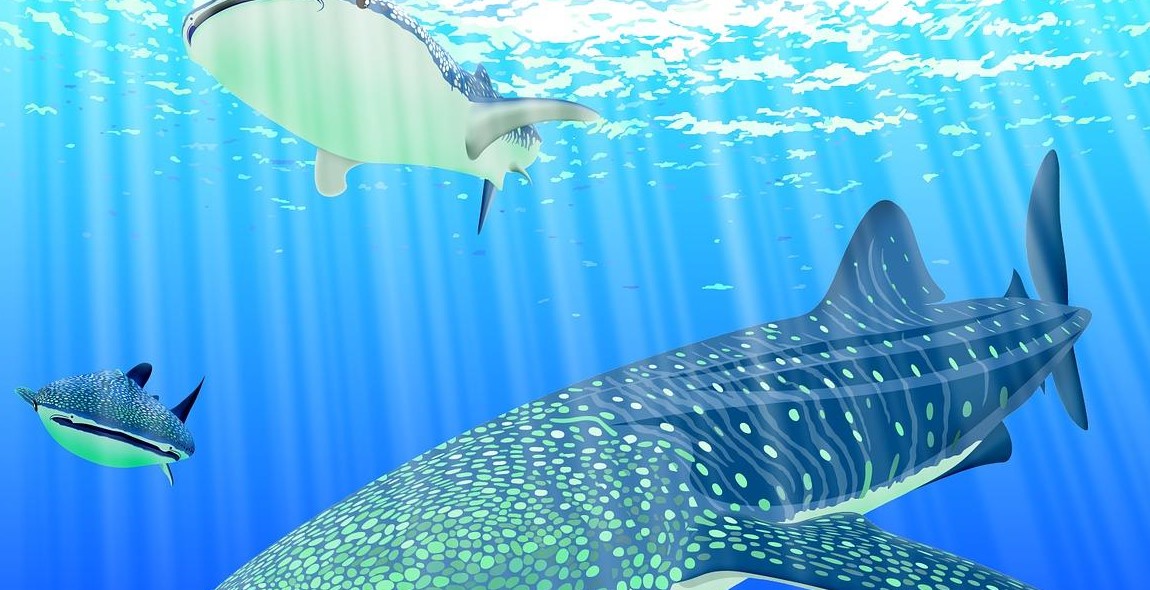How to Swim with Whale Sharks Responsibly: Guidelines for Ethical Interaction with these Gentle Giants
Swimming with whale sharks is an awe-inspiring experience that many people dream of. These gentle giants are the largest fish in the ocean and are known for their docile nature. However, it’s important to remember that these creatures are still wild animals and should be treated with respect and care.
Why Responsible Interaction is Important
Whale sharks are listed as vulnerable by the International Union for Conservation of Nature (IUCN). Their populations have declined in recent years due to overfishing, accidental capture, and habitat destruction. As responsible travelers, it’s our responsibility to ensure that our interactions with these amazing creatures do not harm them or their habitat.
Guidelines for Ethical Interaction
Before embarking on a whale shark encounter, it’s important to research and choose a reputable tour operator that follows responsible guidelines. Once you’re on the water, follow these guidelines:
- Do not touch the whale sharks.
- Do not use flash photography.
- Keep a safe distance of at least three meters from the whale sharks.
- Do not feed the whale sharks or disturb their natural behavior.
- Limit your time in the water to a maximum of 30 minutes.
By following these guidelines and practicing responsible interaction, we can help protect these magnificent creatures for future generations to enjoy.

What are Whale Sharks?
Whale sharks are the largest fish in the world and are known for their gentle nature. These magnificent creatures can grow up to 40 feet long and weigh up to 20 tons. Despite their size, they are harmless to humans and are one of the most popular species for snorkeling and diving.
Physical Characteristics
Whale sharks have a distinctive appearance with their broad, flat head and wide mouth. Their mouths can be up to 4 feet wide, allowing them to filter feed on plankton and small fish. They have five large gill slits on the sides of their bodies and a unique pattern of white spots and lines on their skin, which is used for identification purposes.
| Size | Weight | Lifespan |
|---|---|---|
| Up to 40 feet long | Up to 20 tons | Up to 70 years |
Diet
Whale sharks are filter feeders and primarily eat plankton, krill, and small fish. They have a unique feeding mechanism that allows them to suck in large amounts of water and filter out the food with their gill rakers. Despite their large size, whale sharks have small teeth and do not chew their food.
Habitat
Whale sharks are found in warm, tropical waters around the world, including the Gulf of Mexico, the Philippines, and Australia. They are known to migrate long distances and can be found in both coastal and offshore waters. Whale sharks are a pelagic species, meaning they spend most of their time in the open ocean.
Overall, whale sharks are fascinating creatures that are a joy to observe in their natural habitat. By following responsible and ethical guidelines, we can ensure that these gentle giants continue to thrive for generations to come.

The Importance of Responsible Interaction
Whale sharks are the largest fish in the ocean and are considered gentle giants. However, they are also listed as endangered by the International Union for Conservation of Nature (IUCN) due to threats such as bycatch, habitat loss, and the impact of irresponsible tourism.
The Threats to Whale Sharks
Whale sharks are often caught accidentally in fishing nets, known as bycatch. This is a major threat to their population as it can result in injury or death. In addition, the destruction of their habitat, such as coral reefs and mangrove forests, also contributes to the decline in their population. Furthermore, climate change has caused changes in ocean currents and temperatures, which can affect the distribution of whale sharks and their food sources.
The Impact of Irresponsible Tourism
Whale shark tourism has become increasingly popular in recent years. While it can provide economic benefits to local communities, it can also have negative impacts on the whale sharks themselves. Irresponsible tourism practices, such as touching or riding the whale sharks, can cause stress and injury to the animals. In addition, the use of motorized boats near the whale sharks can disrupt their natural behavior and feeding patterns.
Furthermore, the increase in tourism can also lead to pollution and damage to the whale shark’s habitat. Tourists may leave behind litter or damage coral reefs while snorkeling or diving with the whale sharks. This can have long-term effects on the ecosystem and the whale sharks themselves.
The Importance of Responsible Interaction
It is important to interact with whale sharks responsibly to ensure their conservation and protection. This includes following guidelines set by local authorities and tour operators, such as maintaining a safe distance from the whale sharks and avoiding any physical contact with them. It is also important to choose tour operators that prioritize sustainable and responsible tourism practices, such as using non-motorized boats and limiting the number of tourists per trip.
By interacting with whale sharks responsibly, we can help ensure their survival and protect the delicate balance of the ocean ecosystem.

Guidelines for Swimming with Whale Sharks
Choose a Responsible Tour Operator
When planning to swim with whale sharks, it is important to choose a responsible tour operator. Make sure to do your research and find a tour operator that is licensed, follows the guidelines set by local authorities, and puts the welfare of the whale sharks first. A responsible tour operator will also provide you with a briefing on how to interact with the whale sharks before you start your swim.
Respect the Whale Sharks’ Space
Whale sharks are gentle giants, but they are still wild animals. It is important to respect their space and avoid getting too close. Keep a safe distance of at least 3 meters (10 feet) from the whale sharks. Do not attempt to touch them or ride on their backs. Remember that you are a visitor in their habitat.
Do Not Touch the Whale Sharks
Touching the whale sharks can harm them and disrupt their natural behavior. It can also be dangerous for you, as whale sharks have rough skin that can cause injuries. Always keep your hands to yourself and avoid touching the whale sharks.
Do Not Use Flash Photography
Using flash photography can disturb the whale sharks and affect their behavior. It can also harm their eyes and other sensitive organs. Avoid using flash photography and instead, use natural lighting to capture your experience.
Do Not Wear Sunscreen or Other Chemicals
Sunscreen and other chemicals can be harmful to the whale sharks and their habitat. When swimming with whale sharks, it is recommended to wear a rash guard or other protective clothing that covers your skin. If you must use sunscreen, choose a biodegradable and reef-safe option.
Summary
| Do: | Do not: |
|---|---|
| – Choose a responsible tour operator | – Touch the whale sharks |
| – Respect the whale sharks’ space | – Use flash photography |
| – Follow the guidelines provided by your tour operator | – Wear sunscreen or other chemicals |
Conclusion
Swimming with whale sharks is an amazing experience that can create unforgettable memories. However, it is important to remember that these gentle giants are still wild animals and should be treated with respect and care. Following responsible guidelines for interaction is crucial to ensure the safety of both the whale sharks and humans.
Remember to choose a reputable tour operator that follows ethical guidelines, maintain a safe distance from the whale sharks, and avoid touching or chasing them. It is also important to minimize the impact on their natural habitat by avoiding littering and using environmentally-friendly products.
By following these guidelines, we can enjoy the beauty of whale sharks while also protecting their well-being and preserving their habitat for future generations.
- Choose a responsible tour operator
- Keep a safe distance and avoid touching or chasing whale sharks
- Minimize impact on their natural habitat
- Protect the well-being of whale sharks for future generations
Let us all do our part in promoting responsible interactions with these magnificent creatures. By doing so, we can help protect and preserve the beauty and wonder of the ocean.
